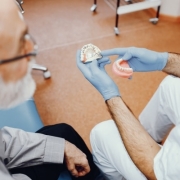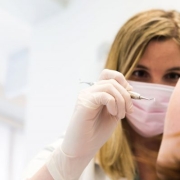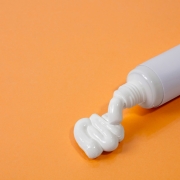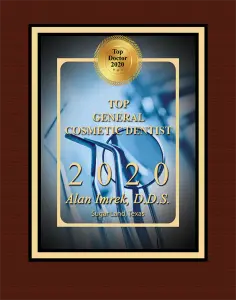Water: A Simple Secret Behind Good Oral Health
Water—the human body is actually made up of roughly 60 percent of it. We, humans, are constantly told how important it is for us to drink water. Yet, a good portion of the population doesn’t take in near enough on a daily basis. Not only is water an important way to support your bodily functions, but getting enough water is also important for your smile. Take a look at how water can be the simple secret behind good oral health.
A hydrated mouth contains fewer bacteria.
Did you know drinking water can lower your risks of infection? Not only can drinking water help with issues like urinary tract infections but taking in ample fluid can also lower bacteria levels in your mouth. Bacteria can be direct contributors to issues with things like bad breath, gum disease, and even tooth decay.
Drinking water helps encourage a healthy blood supply to your mouth.
Health water intake supports a healthy circulatory system. Blood plasma can be as much as 90 percent water, so if your body does not have enough water, your blood supply can be less and your circulatory system may slow. What you may not realize is just how important all this is to your teeth. A healthy blood supply is critical to the health of your gums, saliva production, and more.
Decay can be a direct result of lacking water intake.
When the healthy bacteria in your mouth break down food particles, the result can be a spike in pH levels due to acidic waste products from the bacteria. Higher pH levels in your mouth can be directly linked to heightened chances of tooth decay. For example, when you eat something sugary, the bacteria in your mouth process the particles and the result is an acidic waste. Due to this acidic waste, the pH levels in your mouth go up, which can be hard on your teeth and gums. Drinking water helps to wash away the acidic waste and neutralize pH levels in your mouth.
Take care of your smile with our help!
Sometimes, taking good care of your teeth comes down to some of the simplest changes, and drinking plenty of water is the perfect example. Contact us at First Dental Family & Cosmetic Dentistry in Sugar Land, TX to schedule an appointment if you need help making sure your smile is as healthy as possible.














